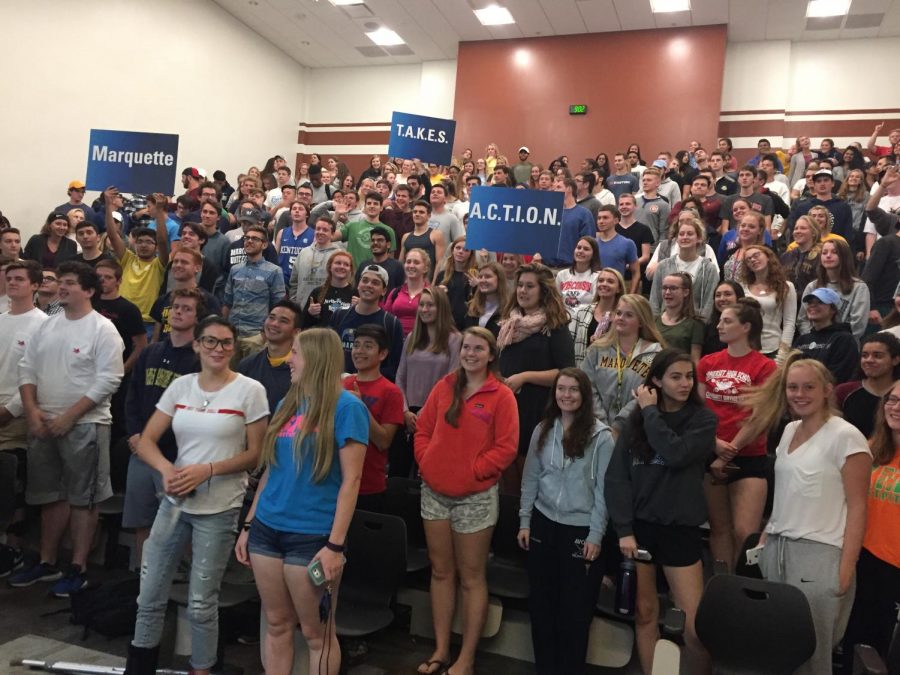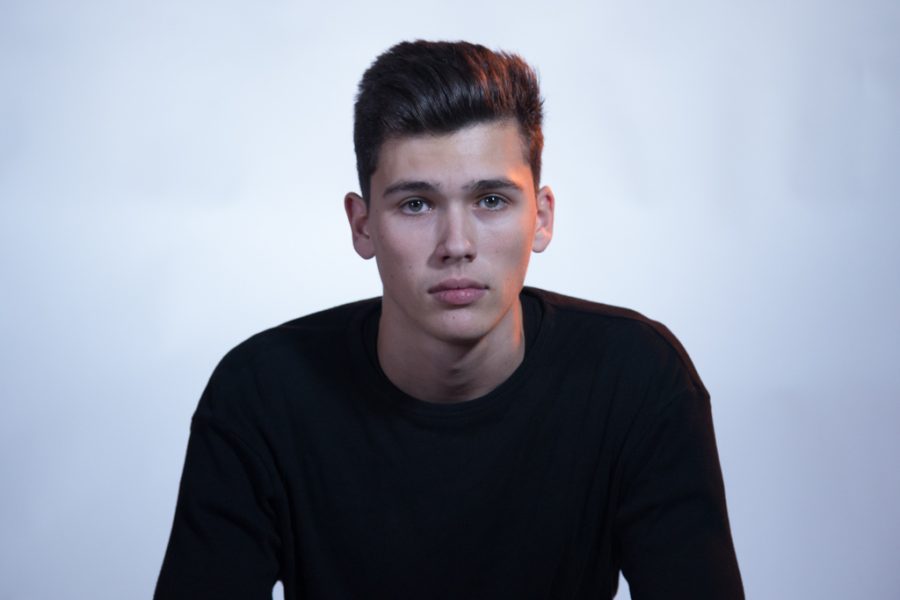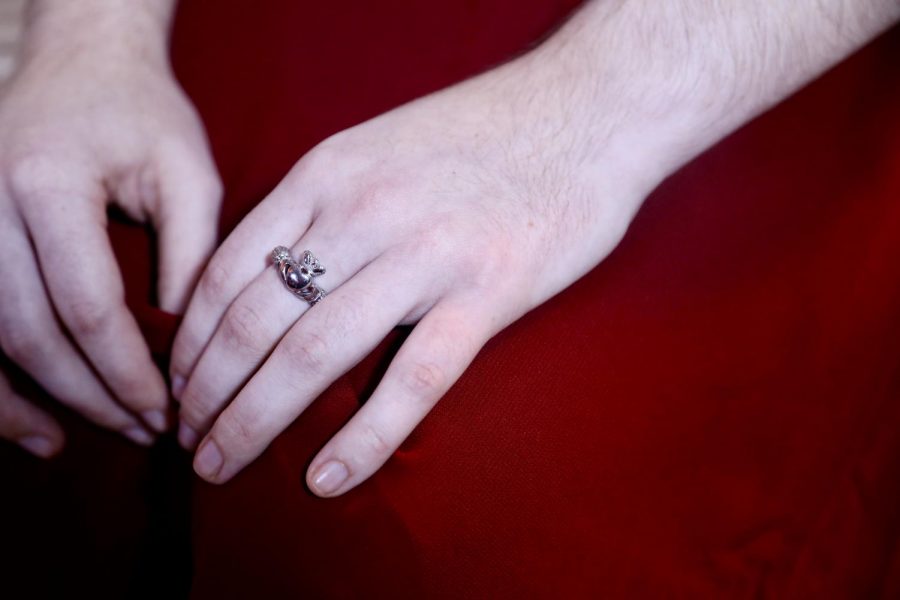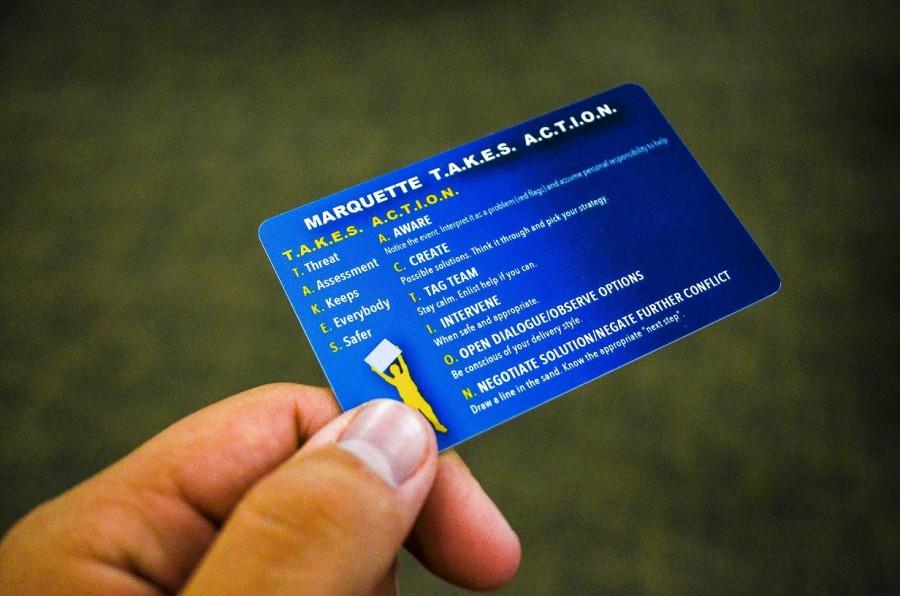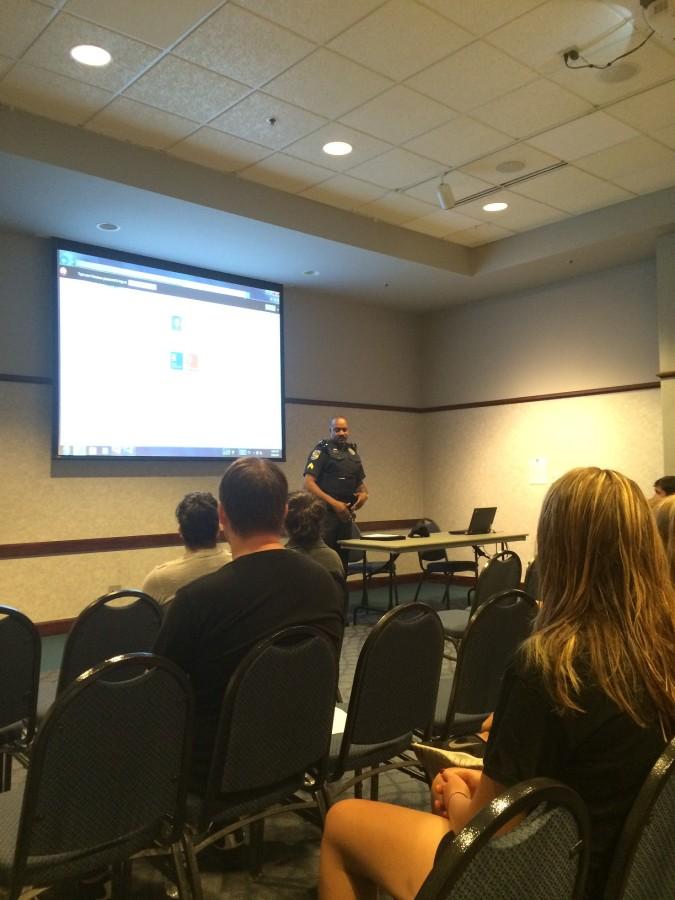David Wilcox compared his fraternity at Drake University to the movie “Animal House,” complete with raucous parties, campus bad boys and scandalous traditions.
Some of the crazy memories at his Sigma Phi Epsilon chapter were paired with a sheepish grin. But that grin faded as he recalled and spoke of terrible moments that continue to haunt him.
Wilcox, a professional in residence in the College of Communication, was at his desk in Johnston Hall when he decided it was time to share his guilt from standing by while his fraternity brothers sexually assaulted women 35 years ago.
“I find myself wondering when someone will turn on one of the guys I knew in college … fraternity brothers … who very clearly and deliberately sexually assaulted women,” Wilcox wrote in a Facebook post last November. “It wasn’t just boys being boys. It was horrible and wrong, and the rest of us knew that but did nothing to stop it, myself included.”
The recent emergence of #MeToo motivated Wilcox to share his college experiences, he said. The #MeToo movement originally meant to assure sexual assault survivors they are not alone. The phrase gained popularity toward the end of 2017 as a way to reveal the prevalence of sexual assault and harassment.
“The ‘Me Too’ hashtag that I saw on Facebook or other social media from people I’m connected to was posted by all women,” Wilcox said. “One day I was just sitting here, and it was right when things were really rolling with #MeToo, and I thought, ‘I’m getting on this train because if I do, maybe some others will too.’”
Wilcox said he knew the post might upset people, especially members of his fraternity, but several responses surprised him: People told him he was brave.
“I wasn’t looking for that. I didn’t agree with it. The time to be brave was 30 years ago, and therein lies the regret,” Wilcox said. “I don’t see that as being brave at all. I see that as finally acknowledging, as so many others are doing, that a lot of stuff happened that we turned a blind eye to.”
No one thought about bystander intervention training when he was in college, Wilcox said.
John Grych, a professor of psychology who researches bystander intervention, said training did not emerge as a sexual assault prevention tool until about a decade ago.
“I think (bystander intervention) is very important because the other approaches haven’t worked very well,” Grych said. “There have been decades of programming that either try to get people not to assault other people or to not get assaulted, and these don’t work. People had been doing this other stuff for a while, and they found that it really never moved the needle on sexual assaults.”
Grych said some studies show that bystander intervention programs are effective and encourage people to take action. However, Grynch said though the research is promising, researchers are unsure if people actually use the knowledge and skills from training.
Lieutenant Jill Weisensel of the Marquette University Police Department co-founded Marquette’s broad-based bystander intervention program, TAKES ACTION, in 2012. It was created for sexual violence prevention but has since expanded to tackle other topics such as alcohol and mental health.
Marquette’s bystander intervention program aims to make Marquette’s community more inclusive so that students are more likely to use empathy to get involved in bad situations, Weisensel said.
“Learning how to intervene is a life skill,” Weisensel said. “The more people realize that they have a responsibility to keep each other safe and that they have a right to be safe, and that this is our community, I think the safer the campus will be.”
Grynch said TAKES ACTION teaches students that we all share a collective responsibility to help each other.
“Start to see others’ welfare as your business,” Grynch said.
Wilcox said even though the assaults he was aware of happened in a different era, they were far beyond the line by today’s standards and by his own moral posture at the time.
“I looked at it as trying to stand up with other people. I didn’t go through any of that, but I still had to carry the knowledge that young women were assaulted in our fraternity house in 1979 or 1980. They’re still carrying that with them, and so am I,” Wilcox said. “I have two or three memories that won’t fade.”

